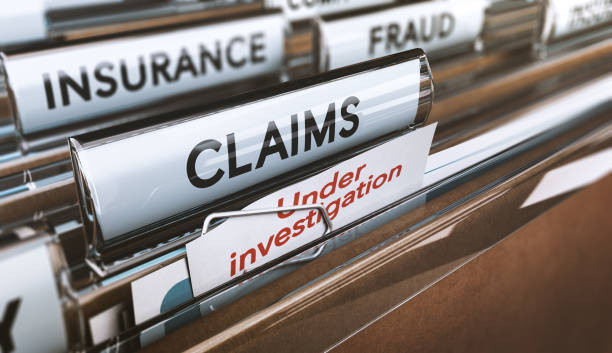ADAS calibration is a critical safety procedure, yet it's often undervalued by insurance companies. This disconnect can lead to heated disputes and delayed repairs. As an auto repair professional, you need to be prepared to fight for fair compensation. Here's how to navigate these tricky waters and ensure you're paid appropriately for your expertise and time.
Understanding the Root of the Problem
Insurance companies often balk at ADAS calibration costs for several reasons:
- Lack of understanding: Many adjusters aren't fully aware of the complexity and importance of ADAS calibrations.
- Outdated pricing models: Insurance companies may be using outdated labor rates that don't account for the specialized equipment and training required for ADAS work.
- Resistance to change: Some insurers are slow to adapt to the increasing prevalence of ADAS technologies in modern vehicles.
Preparing Your Arsenal: Documentation and Education
To successfully navigate insurance disputes, you need to be well-prepared. Here's how:
1. Maintain Detailed Records
- Document every step of the calibration process, including pre-scan and post-scan results.
- Keep precise time logs for each calibration procedure.
- Take photos or videos of the calibration setup and process when possible.
2. Stay Up-to-Date with OEM Procedures
- Always follow manufacturer-specific calibration procedures.
- Keep a database of OEM repair information and be ready to provide it to insurance companies when questioned.
3. Invest in Ongoing Training
- Ensure your technicians are certified and regularly updated on the latest ADAS technologies.
- Document all training and certifications.
4. Understand the True Cost of Your Services
- Calculate your actual costs, including equipment, training, facility requirements, and labor.
- Be prepared to break down these costs for insurance adjusters.
Strategies for Addressing Insurance Company Pushback
When an insurance company disputes your ADAS calibration pricing, try these approaches:
1. Educate the Adjuster
- Explain the complexity of ADAS systems and why proper calibration is crucial for safety.
- Use analogies that relate to other accepted procedures (e.g., "ADAS calibration is as critical to safety as proper alignment is to tire wear and handling").
2. Provide Detailed Breakdowns
- Offer a line-by-line explanation of your pricing, including equipment costs, labor rates, and time requirements.
- Compare your rates to industry standards or local competitors to demonstrate fairness.
3. Leverage OEM Documentation
- Show manufacturer documentation that outlines required procedures and estimated time frames.
- Highlight any specific tools or equipment mandated by the OEM for proper calibration.
4. Emphasize Safety and Liability
- Stress the safety implications of improperly calibrated ADAS systems.
- Remind insurers of potential liability issues if calibrations are skipped or performed incorrectly to cut costs.
5. Use Third-Party Resources
- Reference industry studies or reports that support the importance and complexity of ADAS calibrations.
- Consider joining industry associations that provide resources and advocacy for fair pricing.
When Negotiations Stall: Escalation Tactics
If initial discussions don't resolve the dispute, consider these escalation strategies:
1. Request a Supervisor Review
- Ask to speak with a claims supervisor or manager who may have more authority to approve higher rates.
2. Involve the Vehicle Owner
- Educate the customer about the importance of proper calibration and the potential risks of skipping it.
- Encourage them to advocate on your behalf with their insurance company.
3. Consider Third-Party Mediation
- Some industry organizations offer mediation services for disputes between shops and insurers.
4. Be Prepared to Walk Away
- Sometimes, standing firm on your pricing is necessary, even if it means losing the job.
- Consistently undervaluing your work can harm your business in the long run.
Building Long-Term Solutions
While handling individual disputes is important, working towards systemic changes can reduce future conflicts:
1. Develop Relationships with Local Adjusters
- Invite insurance representatives to your shop for demonstrations of ADAS calibration procedures.
- Offer to be an educational resource for their team on ADAS technologies.
2. Participate in Industry Advocacy
- Join automotive repair associations that lobby for fair compensation and updated insurance practices.
- Attend industry conferences and share your experiences with peers and industry leaders.
3. Continuously Improve Your Processes
- Regularly review and optimize your calibration procedures to ensure efficiency.
- Invest in the latest equipment to stay competitive and justify your rates.
Forging a Path Forward: Balancing Fair Compensation and Customer Service
The road to fair compensation for ADAS calibrations is often challenging, but it's a battle worth fighting. By arming yourself with knowledge, documentation, and effective communication strategies, you can navigate these disputes more successfully.
Remember, your expertise and investment in ADAS technology are valuable. Don't undersell your services, but also strive to find common ground with insurers when possible. The goal is to ensure vehicles are properly repaired and safe for the road while maintaining a sustainable business model.
As ADAS technologies continue to evolve, so too must the relationship between repair shops and insurance companies. By consistently advocating for fair pricing and educating all parties involved, you're not just fighting for your bottom line – you're contributing to a safer automotive future for everyone on the road.
If you liked this content, please subscribe to our newsletter for more great posts.

